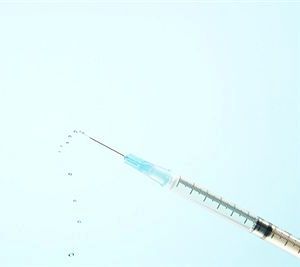At the moment the use of interferon is the only option for aggressive hepatitis C treatment. The truth is that it won’t be able to make up for the damage that the virus has already done, but still it is able to entirely eliminate the virus from the organism.
The people who show no further signs of the virus after treatment for hepatitis C are considered to be cured. Although the treatment seems to be working, there are some disadvantages.
These include low success rate, numerous side effects and the length of the treatment.
Hepatitis C and the treatment for hepatitis C
 We could say that hepatitis refers to the inflammation of the liver. There are numerous causes that could lead to the swelling, so the condition is defined by the cause.
We could say that hepatitis refers to the inflammation of the liver. There are numerous causes that could lead to the swelling, so the condition is defined by the cause.
Getting infected and treatment for hepatitis C
Even though a person might be infected by the virus, he or she may not show any signs of the condition. In case the levels of the virus are low, the damages done to the liver are little and so there is little to gain from using the hepatitis C treatment.
In some of the cases all doctors have to do is to observe the levels of the virus in the blood. In case these levels rise so that they damage the liver, the treatment of hepatitis C comes in the picture and the patient is put on interferon treatment.
Success rate
Although interferon is considered to be a treatment method, there are some patients who get depressed because of the low success rate. Only about 50% of the patients will ever be considered to be cured. In other times the rate is even smaller.
Side effects
As it has been mentioned before, hepatitis C treatment also comes with different kinds of side effects. The common side effects include chills, fever and muscle ache. In many cases the patients report experiencing these flu-like signs that could vary from moderate to severe. Sometimes the symptoms reoccur during the time of the treatment.
Length of the treatment of hepatitis C
Usually the treatment lasts for 24-48 weeks. During this period the patients need injections weekly and their doctors monitor them closely.
There are a lot of patients who decide not to go on with the treatment because of its length and because of the side effects.
The people who have completed the hepatitis C treatment and those who weren’t able to complete it because they weren’t able to put up with the side effects sometimes find that the alternative treatment options for them are quite limited. In case they give up alcohol and take medications, they can slow down the effects of the illness. Nonetheless in some cases it is needed to undergo a liver transplant.
Alternative treatment?
Don’t forget that there is alternative treatment of hepatitis C such as milk thistle and licorice root. A lot of patients praise these plants. Still we have to keep in mind that the claimed results of the treatments seem to be too good to be true. Until 2011 there has been no scientific proof that these plants really work as a treatment for hepatitis C.
Combination therapy
At the moment the best anti-viral therapy is the combination of ribavirin and interferon-alpha. The combination of the two drugs is known as Rebetron. In case of this treatment of hepatitis C we have to note that it is quite expensive, of about $1,400 per month, $17,500 per year. In case of the developing countries this isn’t the best solution because of the high costs and the complicated equipment needed in order to monitor the results of the treatment.
This kind of hepatitis C treatment is used only in case of the patients that have nephron necrosis shown by biopsy and high levels of ALT. Those patients that have nephron necrosis but have normal levels of ALT represent a challenge for modern medicine. In their case ribavirin and interferon turned out to be quite ineffective and so it is no longer used.
Before starting some kind of hepatitis C treatment you should really consider the advantages and the disadvantages and this is something that you ought to discuss with your doctor as well.

